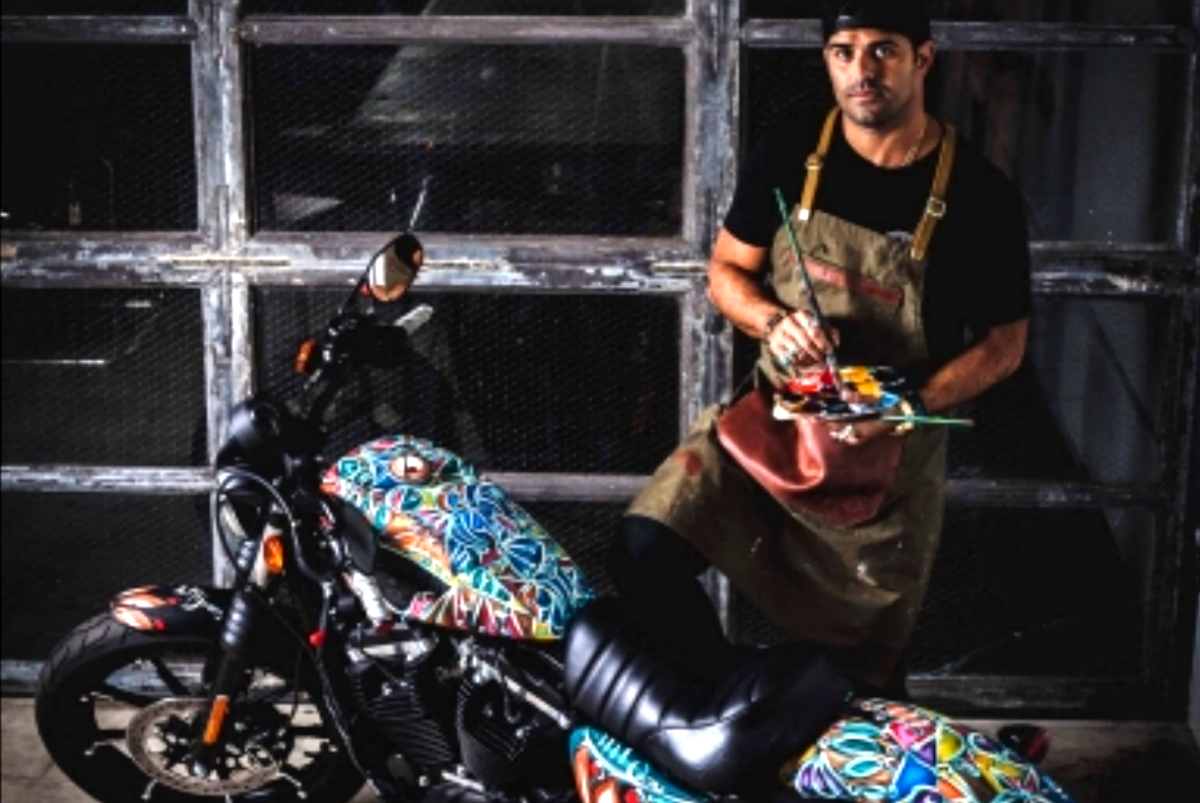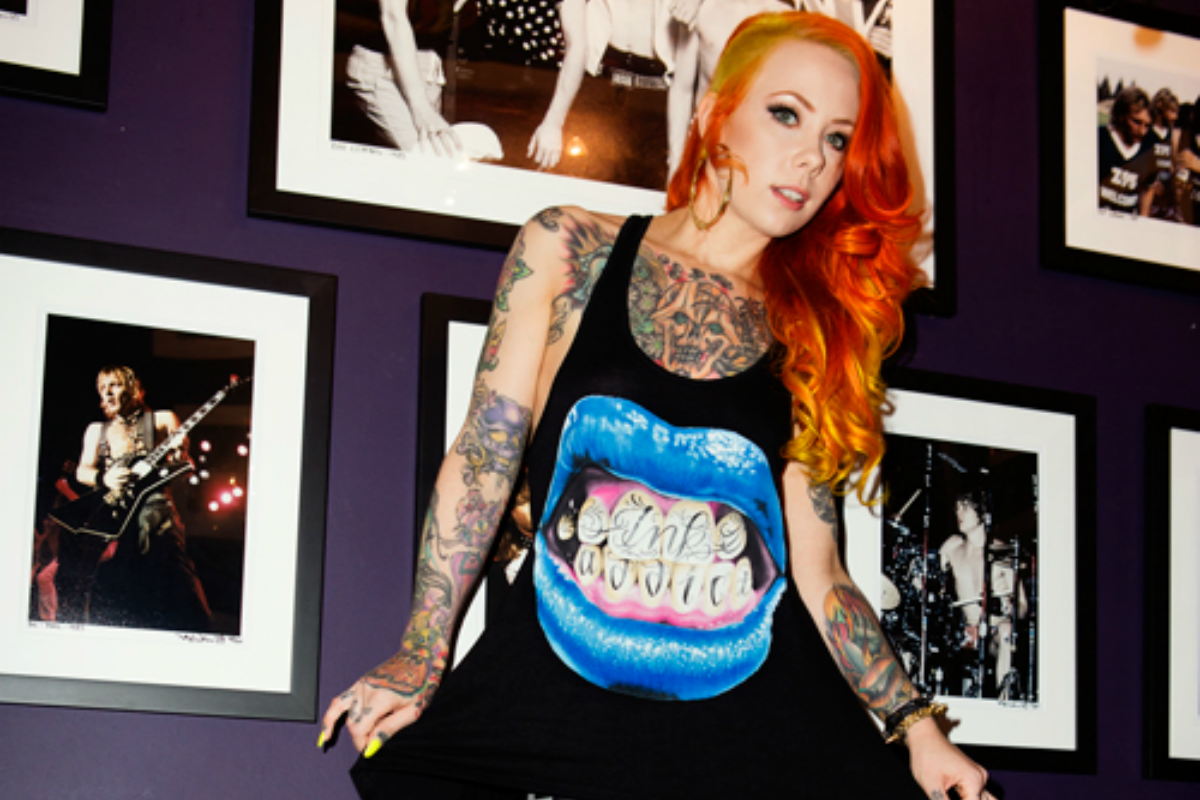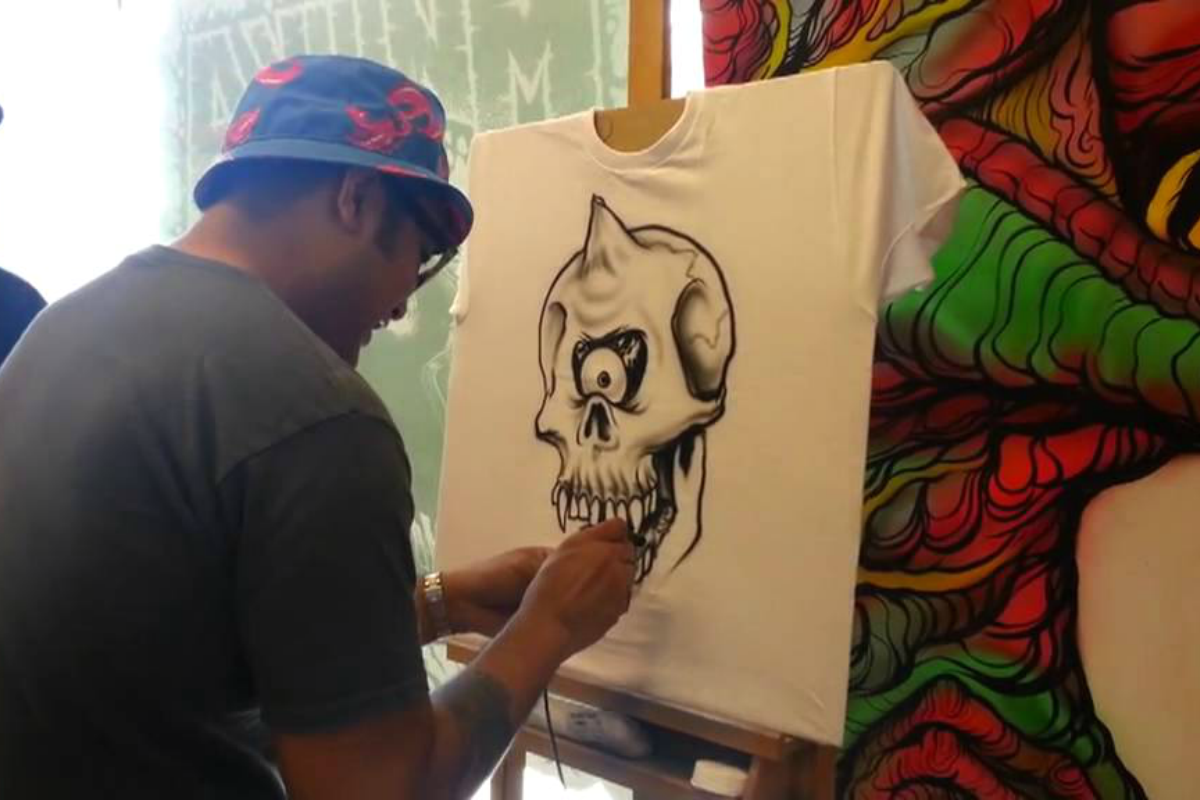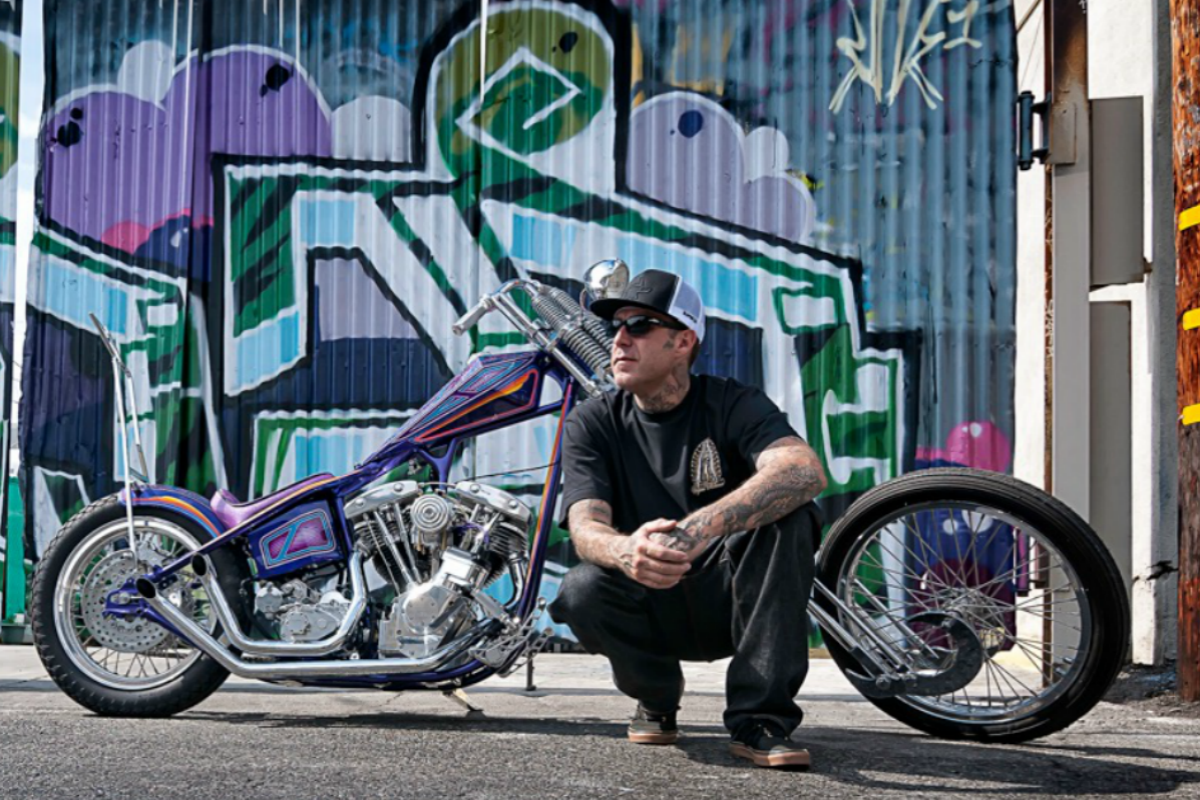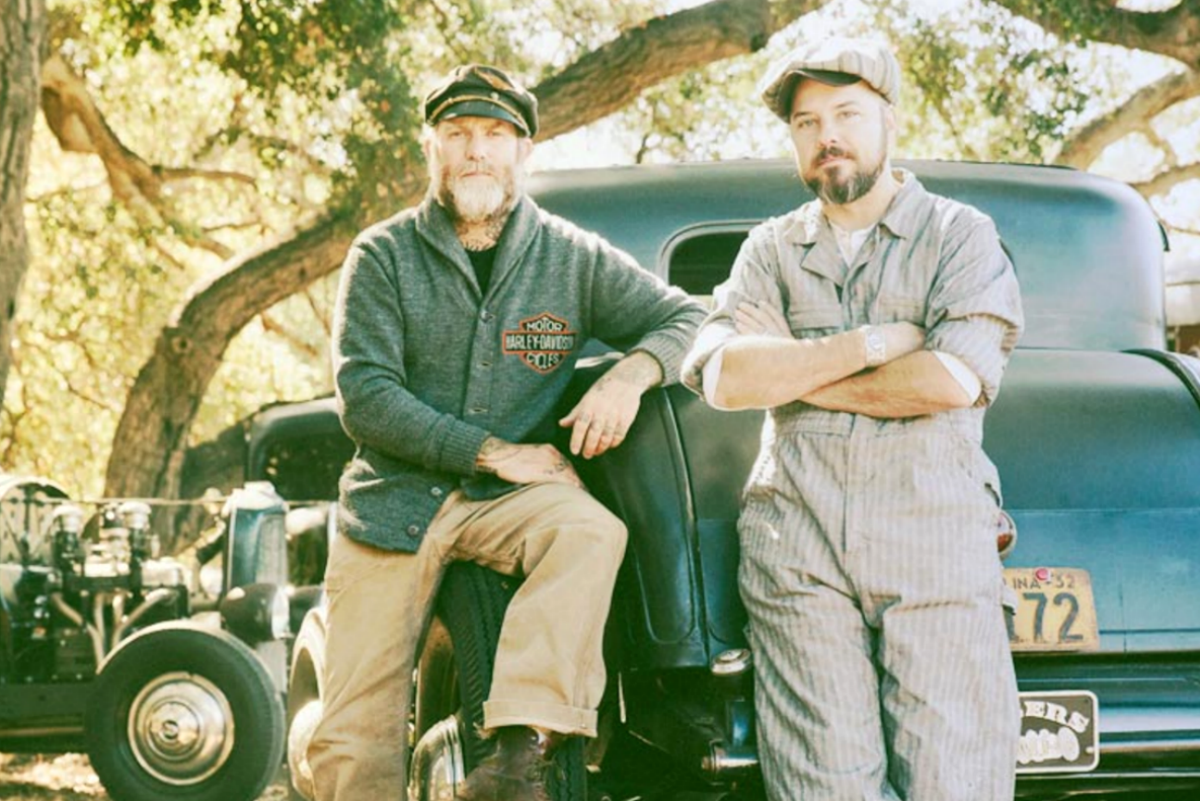Art on motorcycles is a way to put a personal mark on street bikes for all to see. Harley-Davidson partnered with Sailor Jerry Spiced Rum to provide rolling canvases in the form of new 2017 Harley-Davidson street bikes for artists whose usual work involves mural painting, tattoo design, street art, and automotive design.
In all, 22 painted Harley-Davidsons will tour the country this summer, stopping at bars, restaurants, Harley-Davidson dealerships, and regional events for the public to view the rolling art. At the end of the summer, all 22 bikes will be awarded to sweepstakes ticket holders. So it’s a promotion for Harley and Sailor Jerry’s, but it’s also a chance to win a decorated bike; a long chance, sure, but 22 people will win. You can enter here.
The artists are working with three Harley-Davidson models: 2017 Harley-Davidson Iron 883s, 2017 Harley-Davidson Forty-eights, and 2017 Harley-Davison Roadsters. Tattoo artists Jonathan Valena aka JonBoy, Oliver Peck, and Magen Woznicki aka Megan Massacre each created designs for multiple bikes. Also working on the project are Miami-based street muralist Alexander Mijares, automotive designer Michael “BuckWild” Ramirez, and artist L’Amour Supreme. Members of the Harley-Davidson Styling Team rounded out the group.
Oliver Peck and BuckWild designed the art for five bikes each. JonBoy and L’Amour Supreme created the designs for three bikes each. Megan Massacre worked on two bikes, and Alexander Mijares created one design. The Harley-Davidson’s Styling Team created designs for three of the motorcycles. So far, 9 of the 22 bikes have been painted.
Mel Stultz painted the designs on the bikes for Oliver Peck, Megan Massacre, JonBoy, and L’Amour Supreme. The others painted their own bikes. Mel Stultz is the passionate founder and ringleader of the Race of Gentleman, a lively group that attracts vintage hot rods and pre-war motorcycles that race on the beach each summer in Wildwood, New Jersey. Stultz is also a fan of both Harley-Davidson and Sailor Jerry Spiced Rum and a well-known motorcycle builder and painter.
Following are the designers of the finished bikes:
Oliver Peck
Megan Massacre
Alexander Mijares
BuckWild
L’Amour Supreme
Harley-Davidson Style Team
Editors' Recommendations
- Harley-Davidson’s second electric model will be smaller than the LiveWire
- In depth: Why Harley-Davidson is building small bikes for China but not the U.S.

